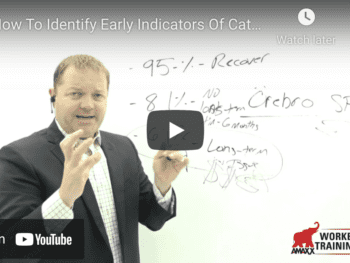
Click Link to Access Free PDF Download
Dealing with Irregular Employment
Calculating the correct average weekly wage varies within each jurisdiction. It is important to consult the pertinent statutes and rules before calculating the correct wage rate. This is also important when reviewing situations where the claimant receives other wages that impact the calculations.
- Overtime Pay. Most jurisdictions consider overtime wages as part of the average weekly wage calculations and require an examination of the 52-week period before the injury. In this review, overtime wages are included in the calculations if the overtime is “regular” or “frequent.” On the other hand, some states will allow all overtime wages to be included in the average weekly wage regardless of how consistent it was before the work injury.
- Tips and other Gratuities. This form of compensation is often an issue in the food and entertainment industries. While every jurisdiction allows tips and gratuities in an average weekly wage calculation, the issue often comes down to whether these wages were reported as taxable income. When investigating these issues, it is important to obtain statements from the claimant regarding wages, and the percentage they claim on their tax returns, and to obtain records to substantiate these claims. This should include records the employer keeps regarding tips, as well as income tax returns for the employee.
- Allowances and Per Diems. This issue creates a lot of complexities when determining the correct average weekly wage. An example of this includes traveling employees who may receive a per deim. While courts have generally allowed these amounts to be includable in the wage calculations, there is a dispute in various jurisdictions if mileage reimbursements.
- Fringe benefits. Benefits such as profit-sharing arrangements and pensions can also be considered wages for inclusion in the average weekly wage calculation. The general rule in most states allows for the inclusion of these benefits. The issue of contention and litigation concerns the actual “control” of the employee in obtaining these benefits. When examining these issues, courts will typically allow it to be a part of the wage when the benefit is tied directly to the performance of the individual employee.
FREE DOWNLOAD: “Step-By-Step Process To Master Workers’ Comp In 90 Days”
- The inclusion of bonuses in an employee’s average weekly wage is similar to that of fringe benefits. In states that allow bonuses to be included in the wage calculation, courts will typically scrutinize the nature of the bonus and whether the employee’s individual efforts resulted in it being paid.
- Paid Time off. Paid times off issues are becoming less frequently litigated issues as more companies move away from “sick pay.” In determining whether to include PTO in an average weekly wage calculation, courts will examine whether it was a benefit the employee “actually earned.”
Conclusions
Average weekly wage calculations remain important in the workers’ compensation system. The claim management team needs to understand how to correctly calculate it and pay benefits accordingly.

Contact: mstack@reduceyourworkerscomp.com.
Workers’ Comp Roundup Blog: http://blog.reduceyourworkerscomp.com/
©2022 Amaxx LLC. All rights reserved under International Copyright Law.
Do not use this information without independent verification. All state laws vary. You should consult with your insurance broker, attorney, or qualified professional.
FREE DOWNLOAD: “Step-By-Step Process To Master Workers’ Comp In 90 Days”
















